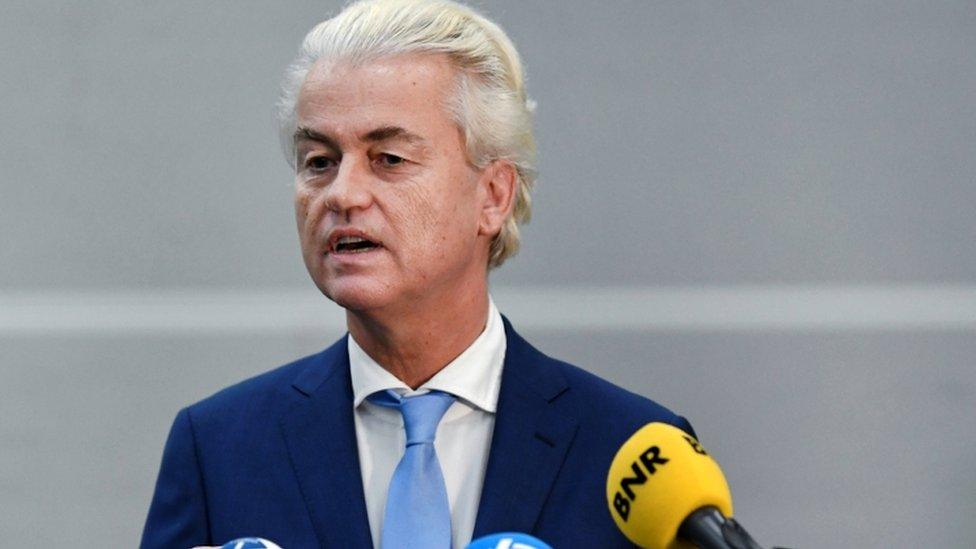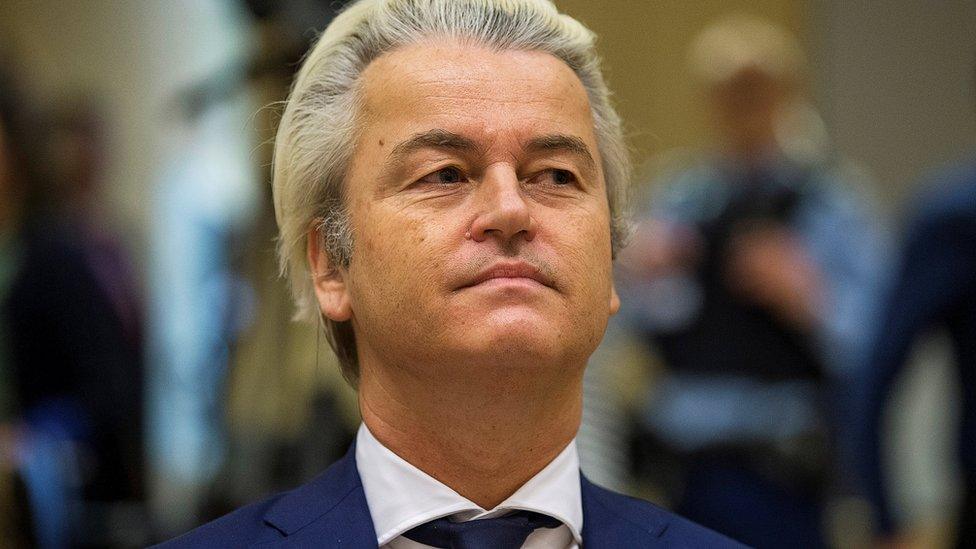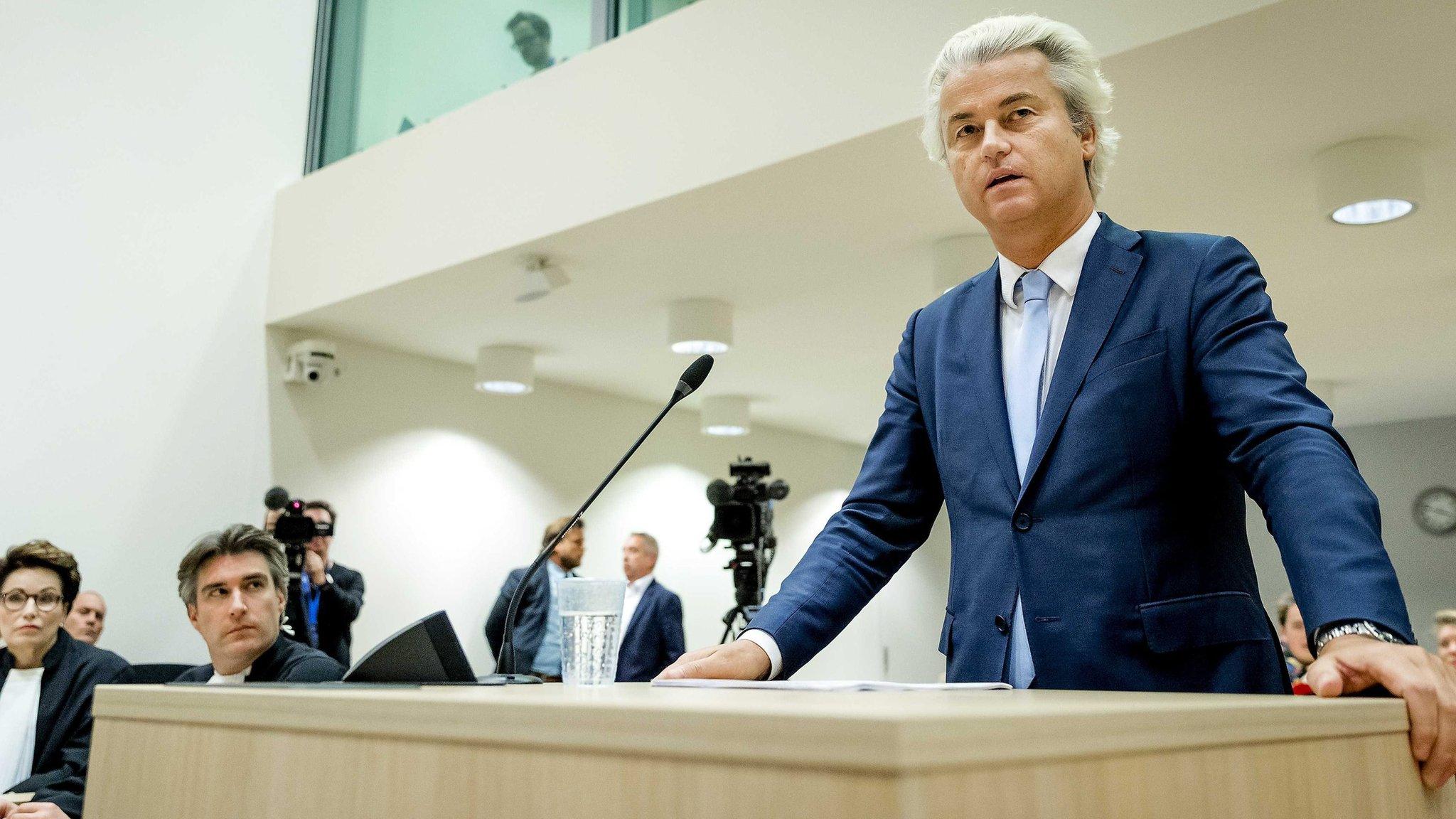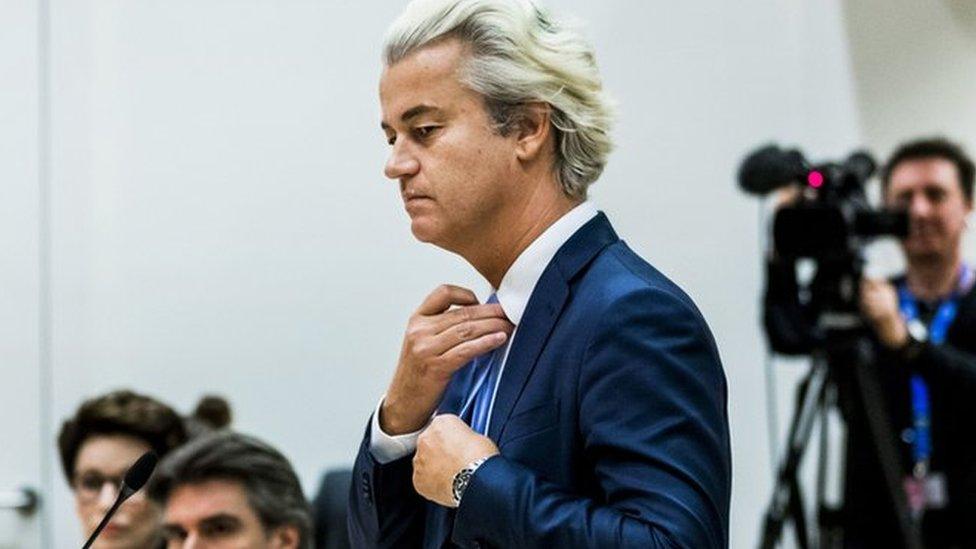Geert Wilders: Dutch far-right leader cleared of inciting hatred
- Published

Geert Wilders argued that his comments should be protected by his right to freedom of speech
A Dutch court has cleared far-right politician Geert Wilders of inciting hatred and discrimination, but upheld his conviction for insulting a racial group.
Mr Wilders was accused of leading calls for "fewer Moroccans" in the Netherlands at a rally in 2014.
In 2016 he was convicted of insulting a group and inciting discrimination.
But the 56-year-old anti-Islam politician called the case a political show-trial and challenged the verdicts.
He argued his comments should be protected by his right to freedom of speech.
What did the judges rule?
Delivering their ruling, judges in Amsterdam said that the leader of the populist Party for Freedom had gone too far during a local election campaign six years ago when he got supporters to chant that they wanted fewer Moroccans in the country.
When the crowd shouted back "Fewer! Fewer!", a smiling Mr Wilders responded: "We're going to take care of that."
This, the appeals judges said, was insulting to people of Moroccan ancestry in the Netherlands.
However, while these chants were insulting, Mr Wilders provoked them for political gain, which did not amount to inciting discrimination, the judges said.
The judges therefore dismissed allegations that Mr Wilders incited discrimination, overturning a conviction by a lower court. An allegation that Mr Wilders incited hatred was also thrown out by the court.
Mr Wilders will not face a jail term, nor will he pay a fine of €5,000 (£4,466; $5,900), which was sought by prosecutors.
The presiding judge said Mr Wilders had "already paid a high price for years for expressing his opinion".
The trial of Wilders, one of Europe's most prominent far-right leaders, has been seen as placing the right to freedom of speech against the right of ethnic and religious minorities not to suffer verbal abuse and discrimination.
Geert Wilders: "I will never be silent"
At the original trial in 2016, prosecutors took testimony from Dutch-Moroccans who said Mr Wilders comments made them feel like "third-rate citizens".
Wilders was previously prosecuted in 2011, over anti-Islam comments such as comparing the religion to Nazism and calling for a ban on the Koran. He was acquitted and the case was widely seen as giving the populist leader a publicity boost.
- Published9 December 2016

- Published23 November 2016

- Published9 December 2016
